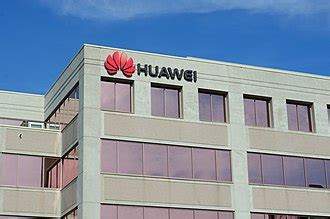Hanging Up on Chinese 5G - Canada joins Five Eyes in banning Huawei and ZTE
By Scott Tilley, ASCF Senior Fellow

May 20, 2022 - After three long years of investigation, analysis, and discussion, the Canadian federal government has finally decided to ban the use of all Huawei and ZTE products and services in the country’s 5G network infrastructure. The term “5G” refers to the fifth generation of broadband cellular networks that promise significantly increased communication speeds. 5G is the successor to 4G, which many Americans see as “LTE” on their phones. Qualcomm, a maker of 5G radio chipsets, states that “Depending on your 5G coverage, maximum download speeds often range from 1Gbps to 10Gbps, and latency, or the time it takes to send data, could go as low as 1 millisecond.”
The decision to ban Huawei and ZTE was likely delayed in part due to the diplomatic situation between Canada and China in recent years, with the arrest of Huawei Chief Financial Officer Meng Wanzhou on a US extradition warrant in Vancouver in December 2018. The Chinese government responded with the retaliatory detainment of two Canadians in China, Michael Kovrig and Michael Spavor, from December 2018 to December 2021. Meng Wanzhou was released from Canadian custody in September 2021 when the US dropped its extradition request.
The major telecommunications providers in Canada have until June 28, 2024, to remove any 5G equipment already deployed. Moreover, they must also remove all Huawei and ZTE equipment previously installed in 4G networks by Dec. 31, 2027. The costs for decommissioning these hardware and software systems will be borne by the companies themselves, not by the government or taxpayers (directly).
This decision puts Canada in agreement with its Five Eyes allies (United States, United Kingdom, Australia, and New Zealand), all of whom had already announced similar restrictions on Huawei and ZTA equipment. The United States has imposed particularly strong and sweeping sanctions on these two companies, primarily because Huawei and ZTA are Chinese. There were significant concerns about giving the Chinese government access to critical components of the West’s next-generation network infrastructure. According to CTV News, “Huawei and the Chinese government have vigorously denied the accusations, saying that the company poses no security threat.”
However, there have been rumors of poorly written (modified open source) software replete with hidden access, and hardware that may also have backdoor portals and may infringe on competitors’ intellectual property rights. There is also worrying Chinese legislation that requires all China-based companies to adhere to government rules and regulations – including providing access to state intelligence services when instructed. These were all deemed too risky – and rightly so. With compromised 5G equipment, the opportunities for industrial espionage and societal monitoring are significant. Read about what happened to Nortel Networks to learn how foreign agents can rapidly compromise corporate leadership, affecting everything from international prestige to pension plans to tax revenues.
Most of the major Canadian companies (e.g., Bell, Telus) had already made the decision to avoid Huawei and ZTE equipment in favor of brands from Finland (Nokia) and Sweden (Ericsson), which are viewed as friendlier partners. With the push for both countries to join NATO, this seems like a reasonable plan. However, it’s a shame that no local companies can provide a full suite of solutions to replace the Chinese gear.
The 5G (and existing 4G) networks should be just the start of a national rethinking of our strategic interest in using foreign technical power in our core systems. For example, Chinese cell phones are popular, particularly in the developing world, because they are relatively inexpensive compared to an Apple iPhone. Unfortunately, this means Chinese computers (which modern smartphones really are) have already penetrated countries worldwide, which suggests dismal prospects for rampant data sharing, invasions of personal privacy, and widespread stealth monitoring.
The United Kingdom recently expressed concern about using Huawei cameras in major cities like London. There was some discussion over whether the cameras were serendipitously listening to nearby conversations, recording the content, and routing it overseas. These connected cameras are an example of the rise of the Internet of Things (IoT), which is already proving difficult to manage. In the IoT world, security has become a significant concern – and a major headache to supervise and rectify.
Ericsson’s tagline is, “Helping to shape a world of communication.” Nokia’s tagline is, “As a technology leader across mobile, fixed, and cloud networks, our solutions enable a more productive, sustainable, and inclusive world.” Now, consider Huawei’s tagline: “Building a Fully Connected, Intelligent World.” Perhaps we should listen to what they are saying and believe their ambitions. They are, after all, literally broadcasting their intentions.
###











